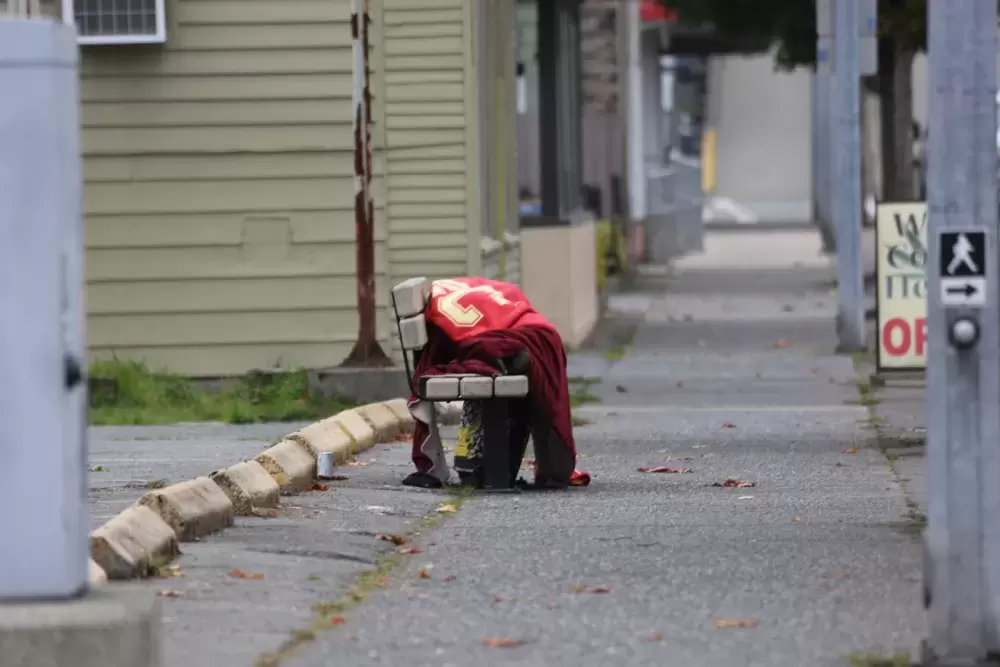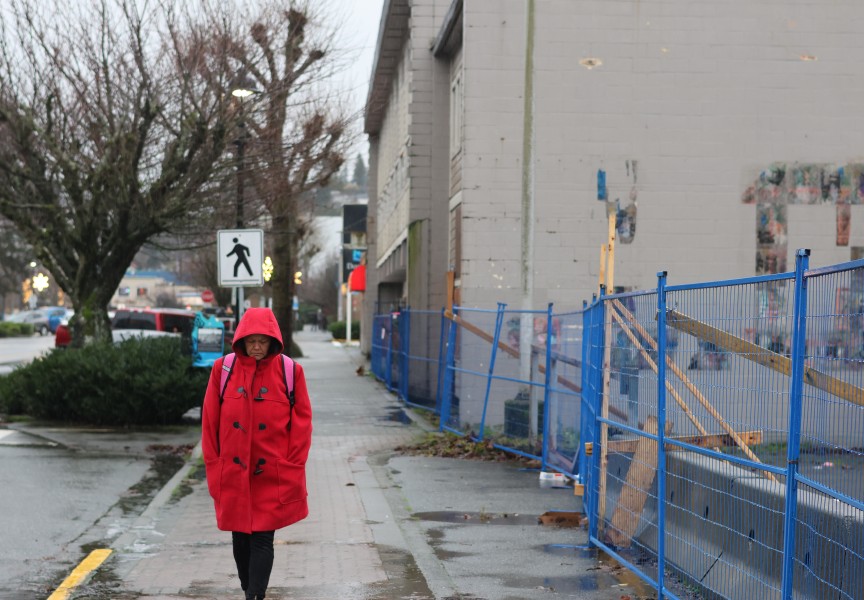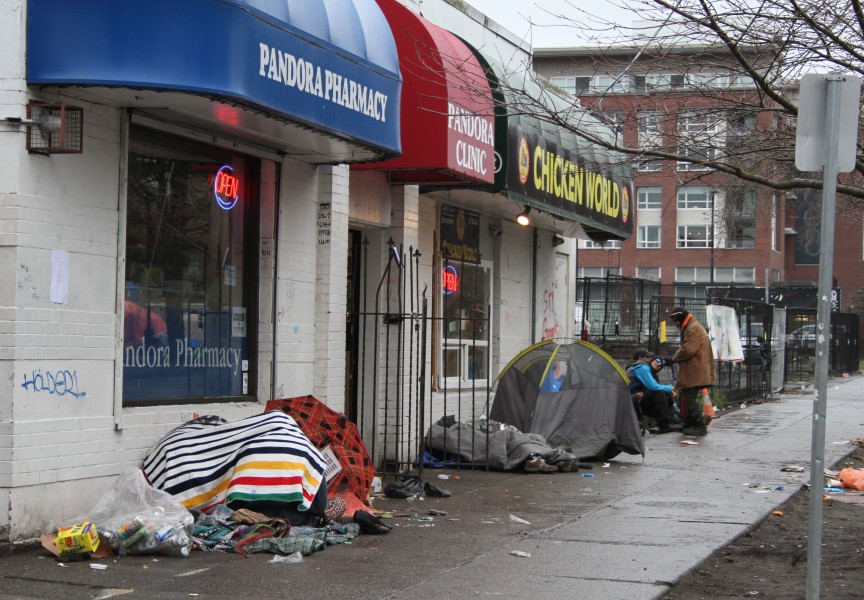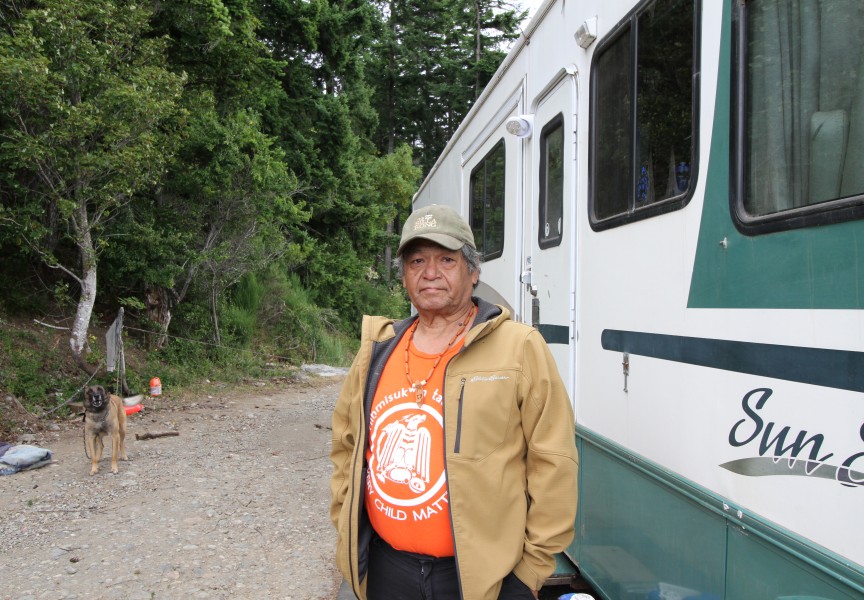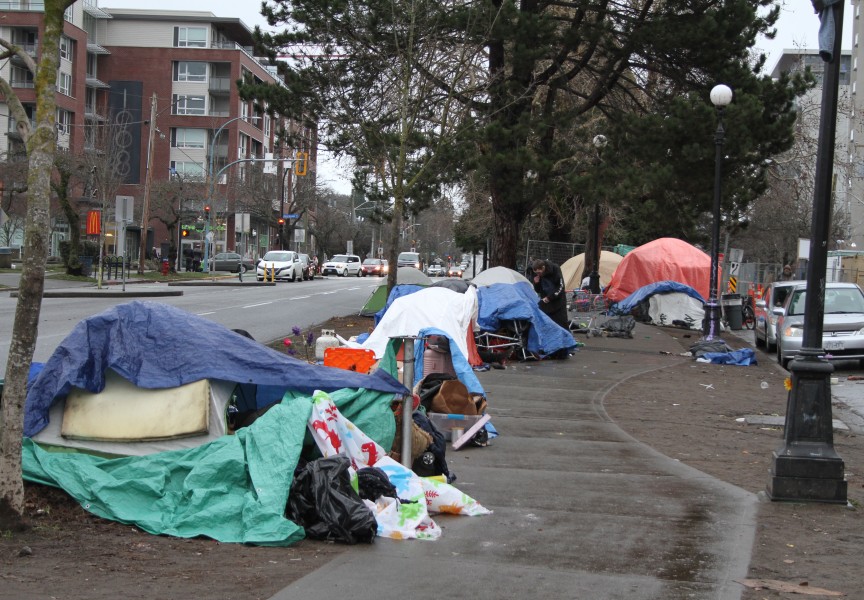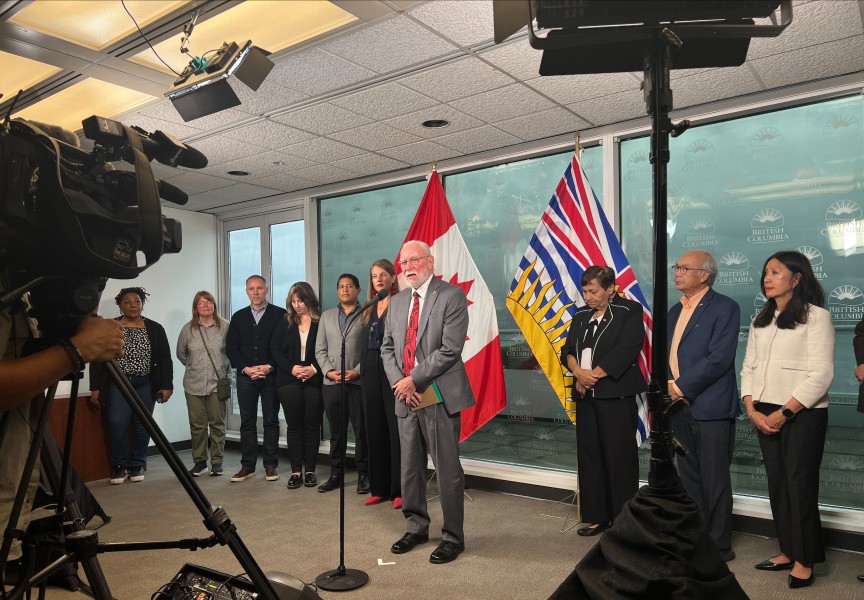The 2021 Port Alberni point-in-time homeless count will begin on April 7 and will run for five days this year.
The last homeless count to take place in the Alberni Valley was in 2018, which recorded 147 individuals experiencing homelessness, 43 per cent of which were sheltered and 57 per cent unsheltered. The Covid-19 Pandemic caused a planned 2020 count to be post-poned.
Marcie DeWitt, Alberni-Clayoquot Health Network coordinator, told Port Alberni city council at a regular meeting on March 8 that the Alberni Valley has been approved for a pilot project that will extend the 24-hour homeless count to five days.
“That means we will be counting for five days following the (24-hour) count,” DeWitt said. “April 7 is the 24-hour count where we will be conducting the majority of our activities and then from [April] 8-12 there will be a slightly separate survey and that will contain some identifying information and questions for individuals to ensure that they aren’t double screened, but it allows us to capture anybody who hasn’t been seen in that 24-hour period.”
First Nations individuals experiencing homelessness will have the opportunity to record which nation they belong to and this DeWitt says will allow First Nation bands in the region to have access to that specific data.
Components of a homelessness point-in-time count include a night count for individuals that are sheltered either at the Port Alberni shelter, transition houses, hospitals and even jail cells, DeWitt said. A day count will include volunteers walking or driving around set routes in the Alberni Valley where homeless individuals tend to spend time. There will also be “drop sites” at service facilities like warming centres and other organizations that provide resources.
DeWitt said homelessness is defined as people who are sheltered or unsheltered, couch surfers, people living in detox facilities, jail or without a fixed address.
“The purpose of doing a count in B.C. is to ensure that the methodology around our homelessness counts is consistent around the province,” DeWitt said. “It’s easier for comparability. This gives us information to provide to BC Housing and BC Housing is the funder of these counts. It also contributes to our ability to leverage funding for the area.”
This year instead of having individual volunteers participate in the count, DeWitt said participants will be members of Alberni Valley service organizations, like outreach workers who already work with, or provide services to, homeless individuals in the community.
“We will be working with the RCMP, Shelter Society, CMHA, Bread of Life, Salvation Army, Friendship Centre to name a few,” DeWitt said.
DeWitt said she believes homelessness and housing challenges are on the rise in the Alberni Valley and region.
“We know there is a significant lack of affordable housing in communities across B.C.,” she said. “I think that with the challenges in the past year, that has certainly been exemplified. It’s been a challenging year for anybody that had any type of barrier to begin with.”
DeWitt added she anticipates a rise in the number of individuals experiencing homelessness from the 2018 count.
Port Alberni mayor Sharie Minions said an updated homeless count will give the city an opportunity to look at the number of housing starts they currently have designated for affordable and supportive housing coming to the community and to “really put some context of how much more is needed at this time.”

